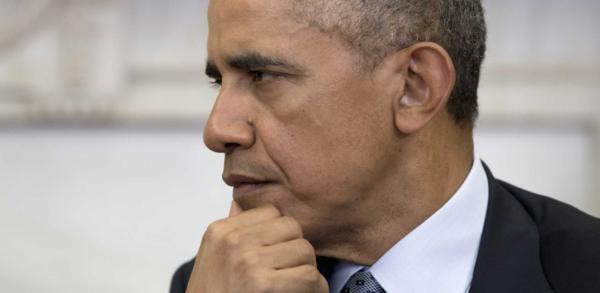
President Barack Obama’s Commerce Department has agreed to shift the country’s Internet domain system over to a nonprofit organization called the Internet Corporation for Assigned Names and Numbers (ICANN) starting October 1. Defenders of the move argue that it’s a necessary symbolic move, while others argue (correctly) that it would give control to foreign governments like Russia and China which frown upon free speech. Here’s everything you need to know about it.
What exactly is ICANN? According to The Atlantic and The Washington Examiner, ICANN is a “multistakeholder” organization featuring countries like China and Russia. ICANN “helps assign domain names and top-level domains”–such as “.com” and “.org”–and is working toward adding even more domain names. Up until October 1, the U.S. had control over ICANN to ensure that the organization would not fall under international control and allow authoritarian regimes to engage in censorship. That all changes when the U.S. government’s contract with ICANN expires.
The lobbying for the end of U.S. control of the Internet intensified due to Edward Snowden. After Snowden’s leaks of the National Security Agency’s government surveillance emerged, ICANN and other foreign governments used the U.S.’s use of surveillance in other countries as reason to end U.S. control of Internet governance.
Net neutrality regulations also paved the way for the ceding of U.S. Internet control. As Arnold Ahlert explains in FrontPageMag, one of the main reasons the U.S. has argued to keep the Internet out of the hands of the United Nations’s International Telecommunications Unit (ITU) is that the Internet does not classify as a “telecommunication service” and is therefore not in the ITU’s purview. However, the net neutrality regulations specifically designate the Internet as a telecommunication service, hamstringing the country in arguing for the Internet to remain out of the ITU’s control.
With the U.S. relinquishing control of ICANN, it will likely fall under the ITU’s control and risk being subject to censorship. Once the U.S. cedes control of it, nothing would stop it from folding into the ITU, especially now that the Internet is classified as a telecommunications service. In fact, ICANN’s CEO, Fadi Chehadé, has been considering the establishment of an office in Geneva, which is “the location of the largest U.N. presence outside New York,” according to The Daily Caller. Chehadé has also reportedly said that “all governments are welcome” in regards to ICANN’s jurisdiction.
At that point, Russia and China would have an easier time in censoring speech that is not to their liking. For instance, Republican Senators Ted Cruz (TX), Mike Lee (UT) and James Lankford (OK) wrote in a letter that they discovered “that ICANN’s Beijing office is actually located within the same building as the Cyberspace Administration of China, which is the central agency within the Chinese government’s censorship regime” and that U.S. companies are folding to China’s mandates for censorship.
Even more chilling is the fact that ITU had passed a treaty that provided “authority to governments to close off their citizens’ access to the global Internet” and creating “a digital Iron Curtain,” according to The Wall Street Journal. If ICANN becomes a part of the U.N., then they too will be subject to this treaty.
Putting ICAAN under U.N. control would also subject American consumers to Internet taxes. Christian Witon, a former senior adviser under the Bush State Department, told The Daily Caller, “If the U.N. gains control what amounts to the directory and traffic signals of the Internet, it can impose whatever taxes it likes. It likely would start with a tax on registering domains and expand from there.”
In other words, various foreign government are salivating at the thought of using the Internet as a revenue stream.
There have been calls for Congress to fight this. Some of have pointed out that the administration’s transfer of Internet governance violates current law, according to the Journal:
Conservative critics say the administration has been flouting the existing restrictions. Brett Schaefer of the conservative think tank Heritage Foundation on Tuesday called the National Telecommunications & Information Administration announcement “a direct violation” of the current law, which prohibits use of taxpayer funds for the transfer. He said Congress should “act to protect its constitutional authority in this matter.”
Another, Berin Szoka of the conservative TechFreedom group, said “private plaintiffs could raise these issues” in court soon, even if Congress doesn’t act. Some conservatives say the domain-name function could be a government asset that can’t be privatized without congressional permission.
Republican lawmakers Sen. Charles Grassley (IA) and Rep. Bob Goodlate (VA) sent a letter to Assistant Commerce Secretary Larry Strickling in June saying that the pending move would indeed violate the law, although Congress has not taken serious action yet against it. Cruz attempted to block the move through his “Protecting Internet Freedom Act” proposal in June.
Source: The Daily Wire
